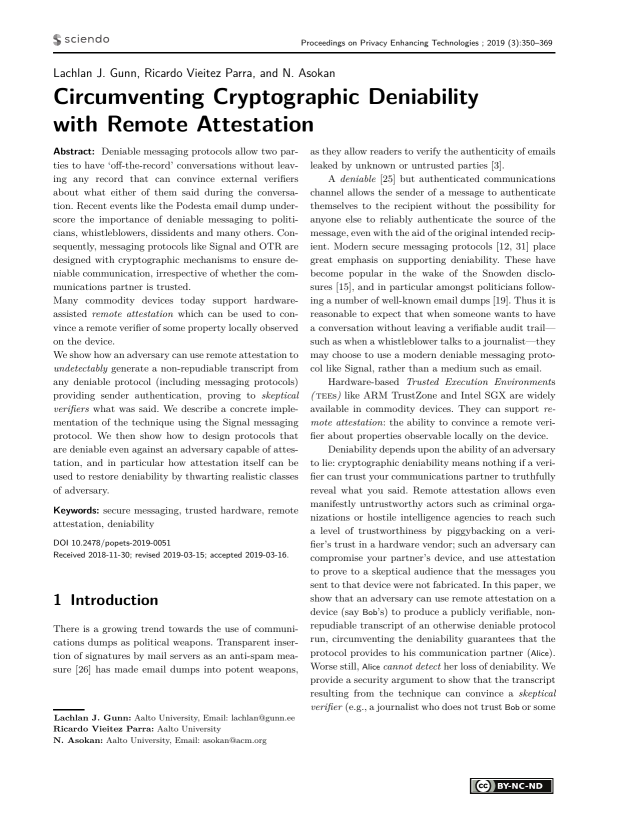Circumventing Cryptographic Deniability with Remote Attestation
Authors: Lachlan J. Gunn (Aalto University), Ricardo Vieitez Parra (Aalto University), N. Asokan (Aalto University)
Volume: 2019
Issue: 3
Pages: 350–369
DOI: https://doi.org/10.2478/popets-2019-0051
Abstract: Deniable messaging protocols allow two parties to have ‘off-the-record’ conversations without leaving any record that can convince external verifiers about what either of them said during the conversation. Recent events like the Podesta email dump underscore the importance of deniable messaging to politicians, whistleblowers, dissidents and many others. Consequently, messaging protocols like Signal and OTR are designed with cryptographic mechanisms to ensure deniable communication, irrespective of whether the communications partner is trusted. Many commodity devices today support hardwareassisted remote attestation which can be used to convince a remote verifier of some property locally observed on the device. We show how an adversary can use remote attestation to undetectably generate a non-repudiable transcript from any deniable protocol (including messaging protocols) providing sender authentication, proving to skeptical verifiers what was said. We describe a concrete implementation of the technique using the Signal messaging protocol. We then show how to design protocols that are deniable even against an adversary capable of attestation, and in particular how attestation itself can be used to restore deniability by thwarting realistic classes of adversary.
Keywords: secure messaging, trusted hardware, remote attestation, deniability
Copyright in PoPETs articles are held by their authors. This article is published under a Creative Commons Attribution-NonCommercial-NoDerivs 3.0 license.

